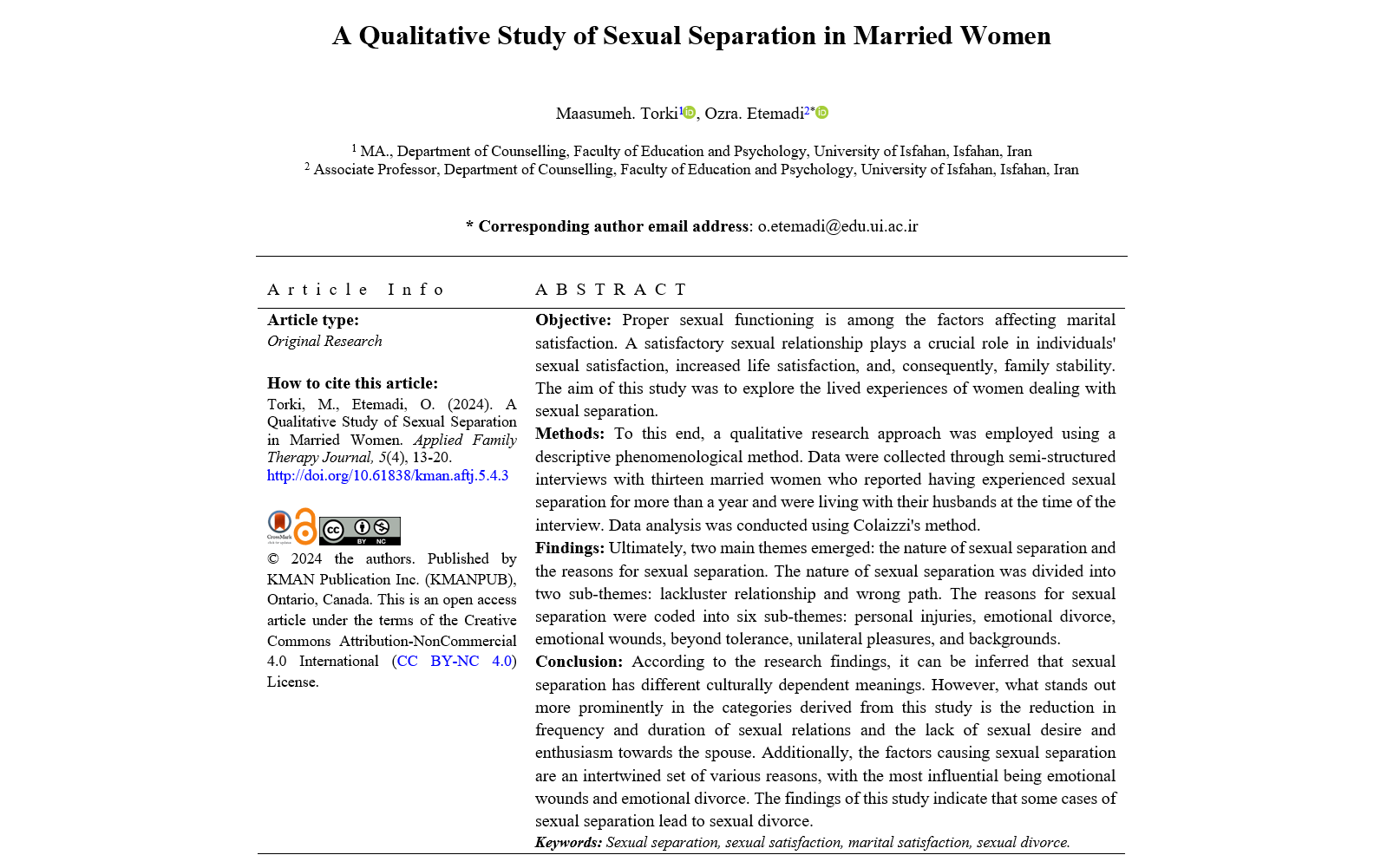A Qualitative Study of Sexual Separation in Married Women
Keywords:
Sexual separation, sexual satisfaction, marital satisfaction, sexual divorceAbstract
Objective: Proper sexual functioning is among the factors affecting marital satisfaction. A satisfactory sexual relationship plays a crucial role in individuals' sexual satisfaction, increased life satisfaction, and, consequently, family stability. The aim of this study was to explore the lived experiences of women dealing with sexual separation.
Methods: To this end, a qualitative research approach was employed using a descriptive phenomenological method. Data were collected through semi-structured interviews with thirteen married women who reported having experienced sexual separation for more than a year and were living with their husbands at the time of the interview. Data analysis was conducted using Colaizzi's method.
Findings: Ultimately, two main themes emerged: the nature of sexual separation and the reasons for sexual separation. The nature of sexual separation was divided into two sub-themes: lackluster relationship and wrong path. The reasons for sexual separation were coded into six sub-themes: personal injuries, emotional divorce, emotional wounds, beyond tolerance, unilateral pleasures, and backgrounds.
Conclusion: According to the research findings, it can be inferred that sexual separation has different culturally dependent meanings. However, what stands out more prominently in the categories derived from this study is the reduction in frequency and duration of sexual relations and the lack of sexual desire and enthusiasm towards the spouse. Additionally, the factors causing sexual separation are an intertwined set of various reasons, with the most influential being emotional wounds and emotional divorce. The findings of this study indicate that some cases of sexual separation lead to sexual divorce.
Downloads

Downloads
Additional Files
Published
Issue
Section
License

This work is licensed under a Creative Commons Attribution-NonCommercial 4.0 International License.




















